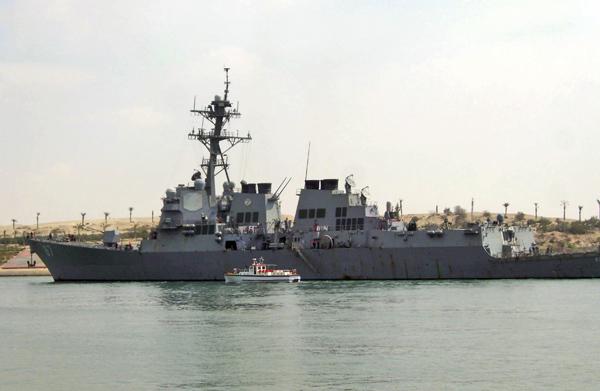You are here
Pentagon prepares for possible new strikes in Yemen
By AFP - Oct 14,2016 - Last updated at Oct 14,2016
WASHINGTON — The Pentagon was on high alert Thursday and preparing for possible new retaliatory strikes in Yemen after US missiles hit Houthi rebel targets for the first time, defence officials told AFP on Thursday.
Five US Tomahawk cruise missiles destroyed three mobile radar sites in Houthi-controlled territory on Yemen's Red Sea coast early Thursday, officials said, after the Iran-backed rebels launched rockets at the USS Mason destroyer twice in four days.
The Houthi missiles were believed to have been C-802 Silkworm anti-ship weapons with "explosively formed penetrator warheads", said a senior defence official, speaking on condition of anonymity.
The US strikes did not target Houthi missiles and, though the radars' destruction makes it harder to aim the weapons, the official warned the rebels could still use small spotter boats or even online ship-tracking websites to find new targets.
"They do need to knock it off. We will not hesitate" to launch new retaliatory attacks, the official said.
Another defence official, again speaking on condition of anonymity, also warned of a continued threat to US and merchant vessels.
“Have we perhaps neutralised [the missile threat] for the time being by taking out their eyes? That’s a possibility, but radar can be brought in pretty quickly. I don’t think anyone here thinks the threat is gone,” he said.
The rockets fired at the USS Mason on Sunday and again on Wednesday were believed to be the first time since 1987 that a US warship had been targeted by an incoming missile.
In May that year, an Iraqi fighter plane shot two missiles at the USS Stark in the Persian Gulf, leading to the deaths of 37 US sailors.
The second defence official said the prospect of an incoming missile would likely have been terrifying for all on board the Mason.
A lucky hit or two could have sunk the ship, he said, and crews would have only had a matter of seconds to react to the incoming threat.
“You are confident that your defensive measures are going to take care of it, but at the same time... you don’t want to be on the receiving end.”
The Navy was tight-lipped about the countermeasures it deployed to block the incoming missiles.
The senior defence official said the Mason sent its own rockets out that blew up in the vicinity of the Houthi weapons.
These are designed to explode in the vicinity of an incoming missile, creating large amounts of debris that bring it down.
It wasn’t clear if the US measures destroyed the missiles, or if these would have crashed into the ocean anyway.
Related Articles
WASHINGTON — Multiple missiles were fired on Saturday at three US warships in the Red Sea, though none was hit and there were no casualties,
WASHINGTON — The United States is seeing growing indications that Iran-allied Houthi rebels, despite denials, were responsible for Sunday's
WASHINGTON — The Pentagon on Tuesday warned that whoever fired missiles at a US Navy destroyer and an accompanying ship off the coast of Yem

















